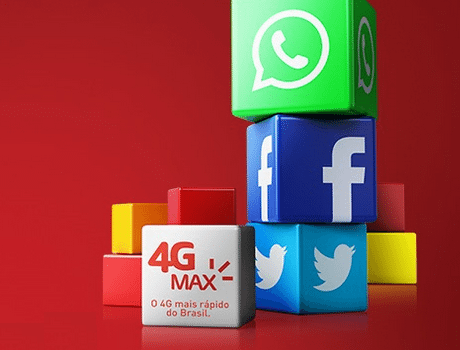America Movil’s Brazilian mobile unit, Claro, announced a strategy focused on including zero-rating access to Facebook, Twitter and WhatsApp in its prepaid and postpaid packages.
The announcement was made less than two months after Claro’s president, Carlos Zenteno, said that zero-rating plans were no longer part of the carrier’s strategy. In April, he said that less than 1% of its customers who took these offers used only Facebook or Twitter.
During the press conference, Claro said the promotion follows research findings that showed customers want to have constant access to social media. Claro will offer access to Facebook, Twitter and WhatsApp free of charge to all customers that sign up for the offers. They should already be subscribers of either prepaid or postpaid packages, including data.
Zenteno told RCR Wireless News that the current offering is different because subscribers can browse whatever they want on the Web, rather than just a specific social media app, due to zero-rating. “It’s an evolution. We realized that it has no purpose only to offer zero-rating access to one site.”
Asked if the offering could conflict with Internet neutrality rules, Zenteno argued that from Claro’s perspective, it’s legal and in compliance with the law. In Brazil, officials are currently conducting a public hearing to address the regulation of Internet law, especially in net neutrality, data storage and privacy. Some experts believe that zero-rating is against the rules, but nothing’s been decided yet.
Claro is the third-largest mobile carrier in Brazil, with 25.25% of market share.
Argentina 4G: Secom has been awarded spectrum in the 700MHz band that was auctioned in October last year. The government received a total of U.S. $2.23 billion for 10 blocks. Telefónica’s Movistar got blocks of spectrum in the 703/713MHz and 758/768MHz range, Telecom Argentina’s Personal was awarded 713/723MHz and 768/778MHz, while América Móvil’s Claro received 723/738MHz and 778/793MHz. Local operator Arlink had been assigned frequencies in both the 700 MHz and AWS (1.7-2.1 GHz) bands to offer both 3G and 4G.
Venezuela: Although the GSM/UMTS is still the most used mobile technology, representing 73.44% of the total, the mobile data traffic has increased by 67% to 12,105 TB in the first quarter 2015 in a year-over-year comparison. According to the telecom regulator in Venezuela, Conatel, the penetration of smartphones is accomplishing the trend, and has risen 25% in one year. Total Internet users reached 16 million, a penetration of 61%. In regards to mobile lines, Movilnet owns 51% of market share, followed by Telefónica (33%) and Digitel (16%). Venezuela ended the first quarter of 2015 with 30,293,708 lines, only 0.8% more than Q1 2014. CDMA is used for 25.41% and LTE for only 1.15%.
More new from Latin American region:
BRAZIL – TIM released its plans to increase the number of Wi-Fi hot spots in the country. Telco has partnered with Enox On-Life Experience that counts 200 places with Wi-Fi infrastructure installed.
CHILE – The increase of the use of WhatsApp in Chile has dropped the mobile voice traffic by 4.5% in Q1 2015. The Internet penetration has reached 64.2%. Of the 11.5 million total accesses, 77.8% are mobile.
REGION – Former SAP and Software AG president for Latin America and the Caribbean, Diego Dzodan, was announced as Facebook’s new VP for the region.
BRAZIL – Chinese mobile phone manufacturer Xiaomi is due to debut in Brazil on June 30, following up on its previously announced plan to launch its products in the country in the first half 2015.
BRAZIL – GOL announced in-flight connectivity services and became the first Brazilian airline to offer broadband Internet access to its passengers.
Wondering what’s going on in Latin America? Why don’t you follow me on Twitter? Also check out all of RCR Wireless News’ Latin American content.

